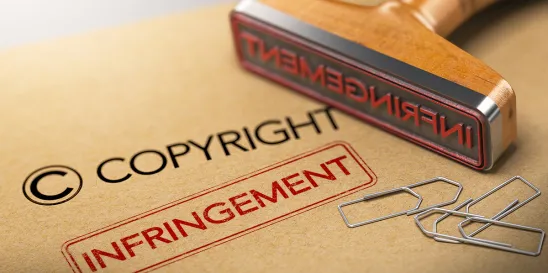A common problem for intellectual property owners in the age of e-commerce is trying to unmask the identity of anonymous infringers to get the infringing activity to stop. Even if a brand owner is successful in unmasking the identity of an infringer, it can be exceedingly difficult to find an appropriate jurisdiction to bring a claim, as infringers are often foreign with no substantial ties to the U.S. However, the Digital Millennium Copyright Act (“DMCA”) provides built-in protection for copyright owners against copycats seeking to sell infringing products.
Under the DMCA, if a copyright owner believes that a party is infringing their registered copyright, the owner may send a “takedown notice” to the internet service provider (“ISP”) to remove or disable access to the material “expeditiously.” 17 U.S.C. §§ 512(c)(1)(C), (c)(3).
Once the ISP receives a “takedown notice,” the alleged infringer has the right to submit a counter-notification to reinstate their product to the ISP’s platform. Id. § 512(g)(3)(D). Generally, the alleged infringer files a counter-notification swearing they have a good faith belief that removal was a mistake or modification, and the product will swiftly return to the ISP’s platform. At that point, the copyright owner is left with two options: sue the infringer or acquiesce to the existence of the infringing product.
While suing a copyright infringer may seem like a tall task—especially where the alleged infringer is located in a foreign jurisdiction—it is made much easier by the DMCA. When an alleged infringer files a counter-notification, they “consent to the jurisdiction of the Federal District Court in the judicial district” where either the infringer is located, or if located outside of the United States, the judicial district where the ISP is located. See, e.g., Epic Games, Inc. v. Mendes, Case No. 17-cv-06223-LB, 2018 WL 2926086 (N.D. Cal. June 12, 2018). In submitting a counter-notification, the infringer also agrees to “accept service of process” from the copyright owner. Id. § 512(g)(3)(D).
By way of example, an Australian infringer who listed an infringing product on Patreon, an ISP, and filed a counter-notification in response to a DMCA takedown notice, was found to have expressly consented to the jurisdiction of the district court in San Francisco, California. Real v. Matteo, No. 17-01288, 2018 WL 493596 (W.D. La. Jan. 3, 2018) (holding that the Australian infringer “consented to the judicial district where Patreon is located—San Francisco, California.”).






 />i
/>i

